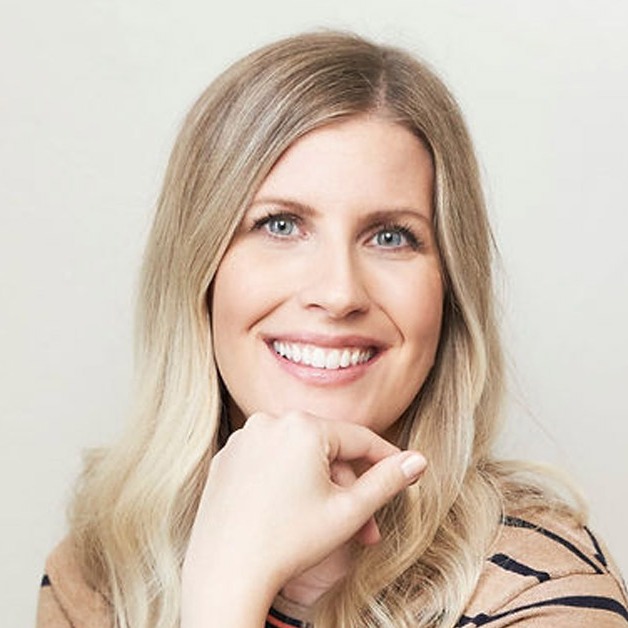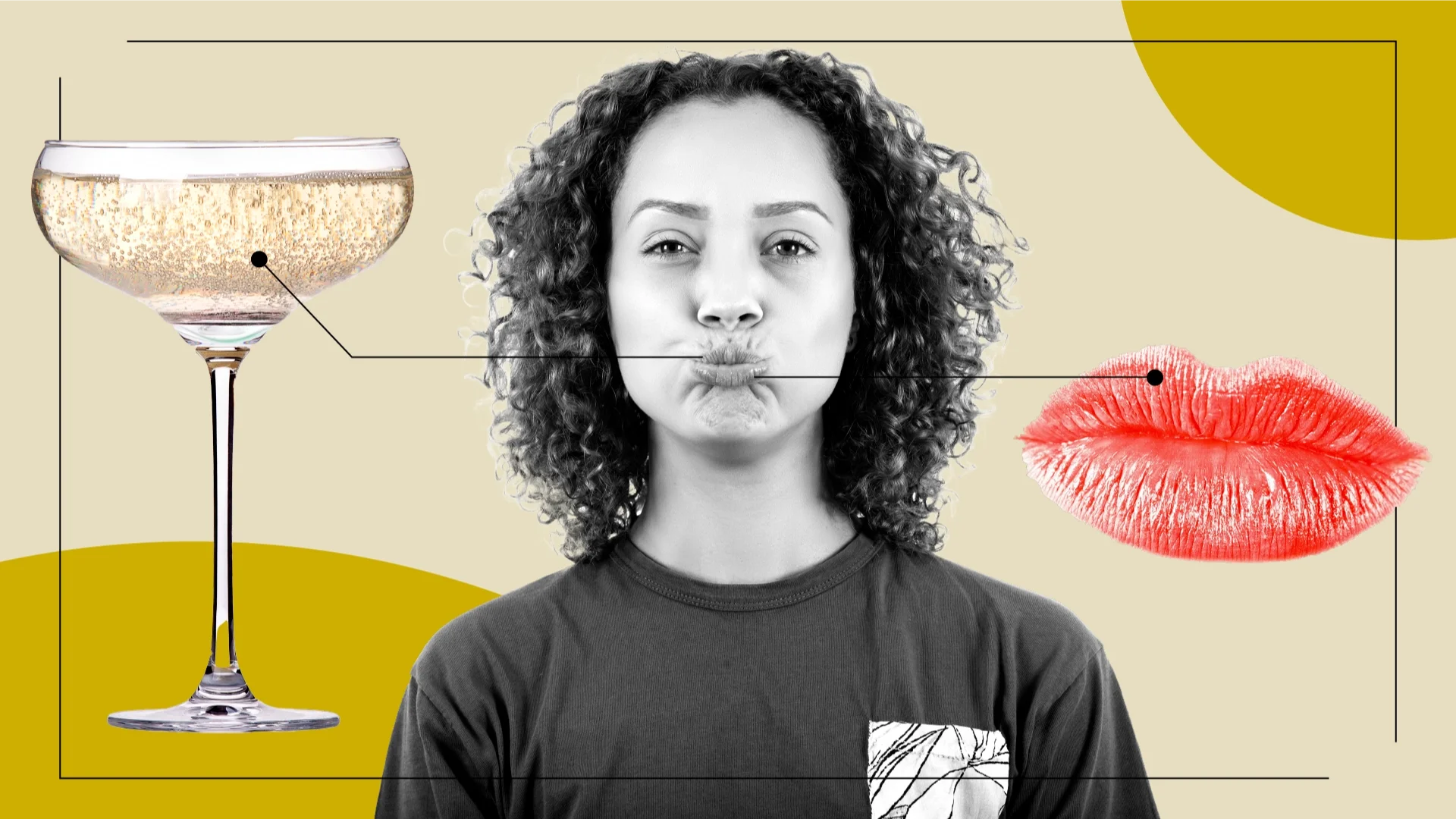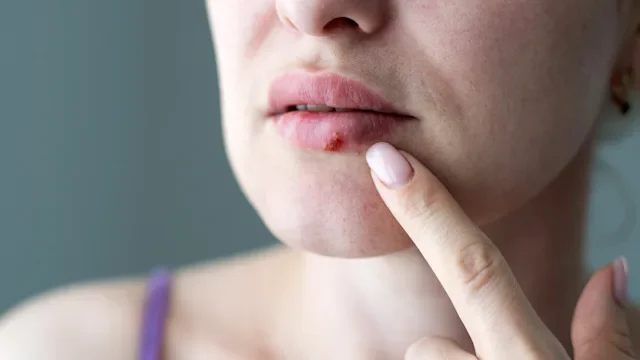Key takeaways:
People who get cold sores say they can feel it before they see it — that tingling or burning sensation that comes around the lips before a sore appears.
Cold sores are contagious, and they can return once you have the virus.
People who get them say they’re sometimes triggered by stress or sun.
Cold sores are a pain in the mouth, not only for the oral discomfort they bring, but also for the stigma surrounding an outbreak.
Cold sores are blisters that can form on or around the mouth and lips. The first sign is often a tingling, itching, or burning sensation. And as the blisters develop, they can become painful, eventually oozing before scabbing over.
Also, cold sores are caused by the herpes simplex virus (HSV) type 1, not to be confused with HSV type 2, which causes genital lesions.
Despite cold sores being very common, people with cold sores may still feel self-conscious about the sores’ physical appearance during an outbreak and how they are contagious, spreading easily through contact such as kissing or sharing food or drinks.
Growing up, teasing came along with cold sores
Avid runner Amanda Mae Renkel, Nashville-based owner of a running blog, experienced her first cold sore as a child and remembers it vividly: “My lower lip started to feel tingly and itchy, and within a few hours a bump appeared.”
The bump eventually blistered and popped. She had two more bouts of cold sore outbreaks soon after. “It felt the same, and it occurred in the exact same spot each time,” she says.
As Amanda grew up, she experienced teasing in middle and high school.
“Children found it humorous to say I had herpes, obviously not specifying which type of the virus,” she says. Still, it was hurtful.
“It made me feel as though I had done something wrong to provoke the virus,” she says. “In hindsight, I realize that it was likely passed on to me from a loved one kissing me goodnight or goodbye.”
- ValtrexValacyclovir
- ZoviraxAcyclovir
- FamciclovirGeneric Famvir
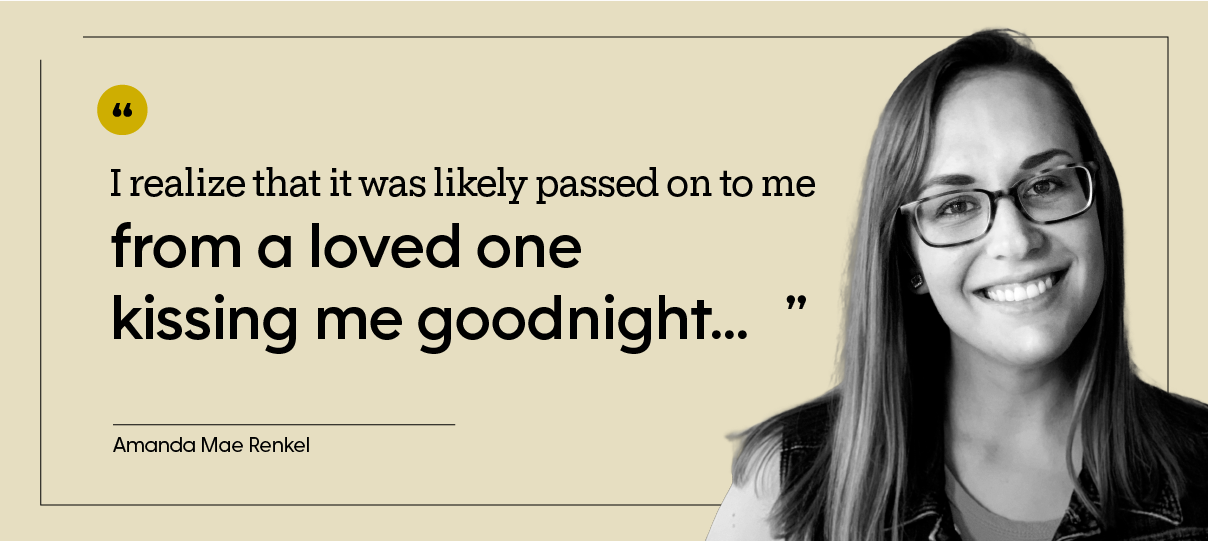
Amanda, who is now 31, is at peace with her condition and is also well-versed in recognizing when an outbreak might be brewing. Stress is a common trigger, particularly when she experiences a dip in immunity.
“I might feel fatigued or get a cold, and soon after a cold sore starts,” she says. She also gets cold sores from prolonged sun exposure, such as a day at the beach without proper SPF lip balm.
For Amanda, treating a cold sore early is key.
She ices her lip right away. She wraps ice in a paper towel and applies pressure to her lip for about 10 minutes, repeating the process several times throughout the day. “I’ve found this relieves the pain and decreases the length of time the cold sore sticks around,” she says.
She also always has her lip balm handy, preferably Carmex. “As a marathon runner, having good lip balm is essential because I often run in sunny and windy conditions — a recipe for cold sore disaster.”
A form of herpes made her feel ‘dirty’
Danielle Clark shared a kiss as a teenager and soon after experienced sores inside her mouth and on her lip. She sought medical care and recalls “feeling shame” when she was informed that cold sores were a form of herpes.
“Without society even saying anything to me, I self-labeled: ‘I’m promiscuous. I’m dirty.’ I instantly started identifying with that even though no one said it to me outright,” she says.
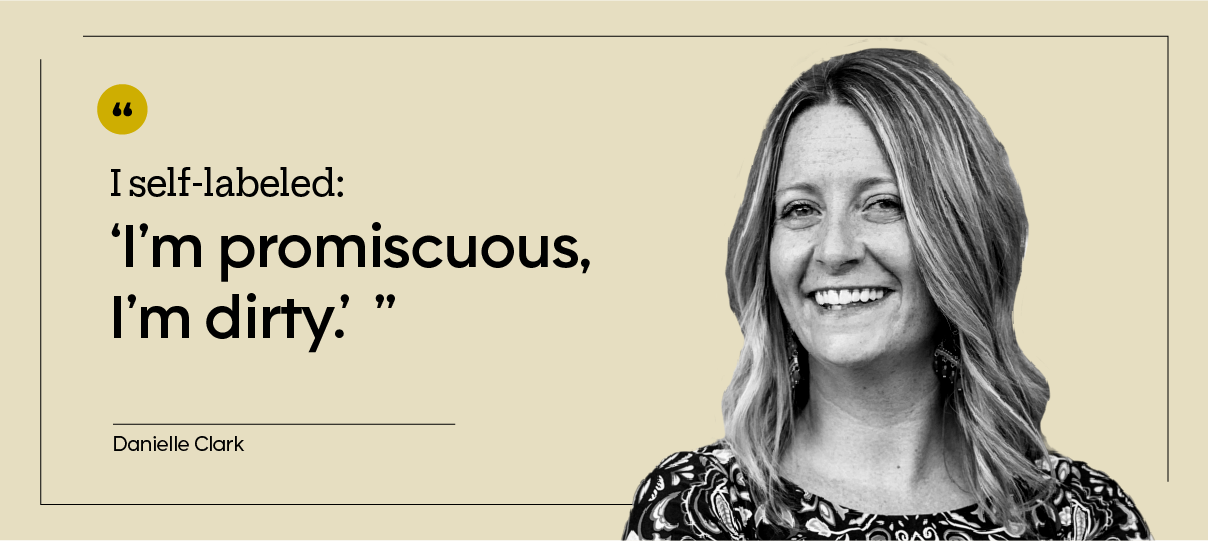
When she met her now-husband, she was scared to tell him about her condition.
“I wrote him an email, and I was trembling thinking that this man isn’t going to want to be with me,” she says.
Danielle, now a 37-year-old Tampa-area business professor and psychic medium with a doctorate in business administration, put a lot of unneeded pressure on herself, she says. “He wrote back and laughed, saying we’ll make sure we’re cautious, but it’s not a big deal.” They’ve been together for 17 years.
Danielle focuses on preventing cold sore outbreaks whenever possible and minimizing symptoms when they do occur.
“Sun exposure is a big trigger for me, so I wear lip balm with SPF and a big floppy hat.”
She has also adopted a more balanced lifestyle since being diagnosed in her teens.
“When I was in my crazy teenage years and twenties — drinking, smoking, not sleeping well — I’d get an outbreak 5 times a year. Fast forward to now, and maybe I get one once or twice a year, and they’re not nearly as significant, either.”
She also recognizes when a cold sore is coming on, noting that it feels like the day before you get a cold.
“You just feel off,” she says. “For me, that’s the first insight that I might be on the brink of experiencing an outbreak.”
In these instances, she takes prescription Valtrex to try to ward off a flare. She also embraces self-care, such as applying ice and lemon balm to her lips, and maintains a positive outlook.
“Cold sores actually offer a beautiful learning opportunity,” she says. “Oftentimes, we’re so focused on what others think of us. This is the ultimate gift to teach us that what others think doesn’t matter.”
Staying diligent to keep cold sores from spreading
Tiffany Langlinais can’t recall the first time she had a cold sore, because she’s had them for as long as she can remember, since childhood. This has equipped the 32-year-old New Orleans-based marketing CEO with a lightning-quick knowledge of when one is coming and what to do.
“I don’t play any games the moment I feel it,” she says, describing it as a “slight pucker” on her lip that feels almost as if a pimple is coming.
“I drop everything and get medication for it. It could be the dead of night, and the moment I realize it’s happening, I’ll run to the store to get a new tube of Abreva.”

Like Amanda, Tiffany recalls being teased as a kid, with her peers taunting that she had herpes on her face — although yes, it’s a form of it, cold sores are a different type with different symptoms.
“I used to be so upset,” she says. Stress is a major trigger for Tiffany, so the teasing she experienced didn’t help her condition.
As she got older, she understood how normal and common cold sores really are. Still, it’s not something she would ever want to pass on.
“I’m extremely diligent about not sharing food and drinks when I know a cold sore is coming,” she says. “I do everything I can, sanitizing makeup brushes, makeup, cups, utensils, anything at all that might come into contact with my mouth.”
Once you get the virus that causes cold sores, you have it for life.
“I wouldn’t want to accidentally introduce it into someone’s system and curse them with the possibility of outbreaks,” she says. “Dramatic, but also very real.”
What does the doctor say?

Patricia Pinto-Garcia, MD, MPH
Medical Editor
Cold sores are extremely common. In fact, more than half of all Americans have antibodies to HSV-1, the virus that causes cold sores.
That means that most people get exposed to the HSV-1 virus at some point in their lives. Look around the room. About half the people sitting in it carry HSV-1, whether they know it or not.
While some of those people will fight off HSV-1 completely, others will carry it and never have symptoms. And some will carry the virus and have breakthrough viral flares in the form of cold sores.
But it doesn’t mean there’s anything “wrong” with your body or your immune system if you experience cold sores. And certainly you didn’t do anything wrong.
Whether you develop cold sores really just comes down to statistics. A certain percentage of people get HSV and develop cold sores, others don’t.
Cold sores aren’t dangerous to your health, and they don’t scar. But, they are painful and uncomfortable. They can also cause people a lot of embarrassment and emotional distress. Dealing with the physical effects of cold sores is a lot more straightforward and can easily be broken down into 3 steps.
First, avoid or prepare for your triggers. If UV light and sunburn trigger your cold sores, wear sunscreen, use a hat, and avoid the hottest part of the day. If cold weather triggers your cold sores, bundle up if you need to go out. If colds are your trigger, wear a mask, wash your hands, and keep away from people who feel sick.
Second, if you feel a cold sore coming on, start your antivirals. If you don’t have prescription antivirals, talk to your healthcare provider. There are many options available, including pills (Valtrex) and medicated ointment (acyclovir).
Third, grab your “go-to” over-the-counter treatment or home remedies. Antivirals may not always keep a cold sore from developing (though they can help cold sores heal faster). So, you’ll need something to relieve cold sore symptoms, like Abreva or cold packs.

Why trust our experts?
